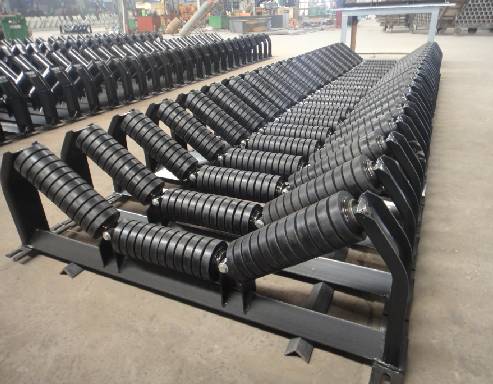 Afrikaans
Afrikaans  Albanian
Albanian  Amharic
Amharic  Arabic
Arabic  Armenian
Armenian  Azerbaijani
Azerbaijani  Basque
Basque  Belarusian
Belarusian  Bengali
Bengali  Bosnian
Bosnian  Bulgarian
Bulgarian  Catalan
Catalan  Cebuano
Cebuano  Corsican
Corsican  Croatian
Croatian  Czech
Czech  Danish
Danish  Dutch
Dutch  English
English  Esperanto
Esperanto  Estonian
Estonian  Finnish
Finnish  French
French  Frisian
Frisian  Galician
Galician  Georgian
Georgian  German
German  Greek
Greek  Gujarati
Gujarati  Haitian Creole
Haitian Creole  hausa
hausa  hawaiian
hawaiian  Hebrew
Hebrew  Hindi
Hindi  Miao
Miao  Hungarian
Hungarian  Icelandic
Icelandic  igbo
igbo  Indonesian
Indonesian  irish
irish  Italian
Italian  Japanese
Japanese  Javanese
Javanese  Kannada
Kannada  kazakh
kazakh  Khmer
Khmer  Rwandese
Rwandese  Korean
Korean  Kurdish
Kurdish  Kyrgyz
Kyrgyz  Lao
Lao  Latin
Latin  Latvian
Latvian  Lithuanian
Lithuanian  Luxembourgish
Luxembourgish  Macedonian
Macedonian  Malgashi
Malgashi  Malay
Malay  Malayalam
Malayalam  Maltese
Maltese  Maori
Maori  Marathi
Marathi  Mongolian
Mongolian  Myanmar
Myanmar  Nepali
Nepali  Norwegian
Norwegian  Norwegian
Norwegian  Occitan
Occitan  Pashto
Pashto  Persian
Persian  Polish
Polish  Portuguese
Portuguese  Punjabi
Punjabi  Romanian
Romanian  Russian
Russian  Samoan
Samoan  Scottish Gaelic
Scottish Gaelic  Serbian
Serbian  Sesotho
Sesotho  Shona
Shona  Sindhi
Sindhi  Sinhala
Sinhala  Slovak
Slovak  Slovenian
Slovenian  Somali
Somali  Spanish
Spanish  Sundanese
Sundanese  Swahili
Swahili  Swedish
Swedish  Tagalog
Tagalog  Tajik
Tajik  Tamil
Tamil  Tatar
Tatar  Telugu
Telugu  Thai
Thai  Turkish
Turkish  Turkmen
Turkmen  Ukrainian
Ukrainian  Urdu
Urdu  Uighur
Uighur  Uzbek
Uzbek  Vietnamese
Vietnamese  Welsh
Welsh  Bantu
Bantu  Yiddish
Yiddish  Yoruba
Yoruba  Zulu
Zulu Top Suppliers for Conveyor Belt Pulleys and Related Equipment Solutions
Understanding Conveyor Belt Pulleys and Their Suppliers
Conveyor belt pulleys are essential components in material handling systems, widely used across various industries, including mining, agriculture, logistics, and manufacturing. These pulleys serve multiple functions, from providing tension to the conveyor belt to directing the movement of materials. It’s important to understand the different types of pulleys available, their specifications, and the role of suppliers in ensuring the efficient operation of conveyor systems.
Types of Conveyor Belt Pulleys
1. Drive Pulleys These are usually powered by a motor and are responsible for moving the belt. They create the necessary friction to move the load, and their design often includes features to enhance grip. Drive pulleys can be lagged (covered with rubber or other materials) to increase traction, making them suitable for heavy-duty applications.
2. Idler Pulleys These pulleys are not powered but play a critical role in supporting the conveyor belt as it travels. Idler pulleys help maintain belt tension and can be positioned at various angles to direct the belt. Their durability is crucial, as they should withstand wear over time while contributing to the efficiency of the system.
3. Take-Up Pulleys These pulleys are used to maintain the tension in the conveyor belt, ensuring that it runs smoothly and doesn’t slip. They can be manual or automatic, providing flexibility based on the system’s requirements.
4. Tail Pulleys Located at the end of the conveyor system, tail pulleys guide the belt return and help prevent spillage of materials. They should be designed to handle the impact of falling materials and high tension levels.
The Importance of Quality in Conveyor Belt Pulleys
Selecting high-quality conveyor belt pulleys is crucial for the overall performance of a conveyor system. Inferior quality components can lead to increased downtime, higher maintenance costs, and potential safety hazards. Therefore, it’s important to consider the material, construction, and engineering of the pulleys
- Material Pulleys are typically made from steel, aluminum, or plastic
. For heavy-duty applications, heavy-duty steel pulleys with corrosion-resistant coatings are recommended.- Construction The construction of pulleys should ensure robustness. Features like reinforced rims and sealed bearings can significantly enhance the lifespan of the pulleys.
conveyor belt pulleys suppliers

- Engineering Factors such as proper load capacity and resistance to wear and tear should be considered during the engineering phase. High-quality pulleys are often subject to rigorous testing to ensure their performance.
Finding Reliable Suppliers
When it comes to sourcing conveyor belt pulleys, working with reliable suppliers is paramount. Here are some key factors to consider when selecting a supplier
1. Experience and Reputation Choose suppliers with proven experience in the field. Companies that specialize in conveyor systems and have a strong reputation are more likely to provide quality products.
2. Product Range A reputable supplier should offer a wide variety of pulleys, catering to different applications. This ensures that you can find the right pulleys suited to your specific needs.
3. Customization Options Sometimes, standard pulleys may not fit the requirements of a particular application. A good supplier should offer customization options, allowing you to specify dimensions, materials, and designs.
4. Customer Support Excellent customer service is vital. Suppliers should provide technical support and advice to help clients select the right products for their systems.
5. Pricing and Delivery While pricing may be a consideration, it’s important to balance cost with quality. Additionally, suppliers should provide clear delivery timelines to help you manage your operations efficiently.
Conclusion
In conclusion, conveyor belt pulleys are critical components that ensure the smooth operation of conveyor systems in various industries. Understanding the types of pulleys and finding reliable suppliers can greatly enhance operational efficiency. As industries continue to evolve, the demand for high-quality conveyor belt pulleys and dependable suppliers will only increase, making it essential for businesses to focus on these aspects in their supply chain management. Investing in quality pulleys and establishing strong relationships with suppliers can lead to improved productivity and reduced operational costs in the long run.
-
Revolutionizing Conveyor Reliability with Advanced Rubber Lagging PulleysNewsJul.22,2025
-
Powering Precision and Durability with Expert Manufacturers of Conveyor ComponentsNewsJul.22,2025
-
Optimizing Conveyor Systems with Advanced Conveyor AccessoriesNewsJul.22,2025
-
Maximize Conveyor Efficiency with Quality Conveyor Idler PulleysNewsJul.22,2025
-
Future-Proof Your Conveyor System with High-Performance Polyurethane RollerNewsJul.22,2025
-
Driving Efficiency Forward with Quality Idlers and RollersNewsJul.22,2025





























